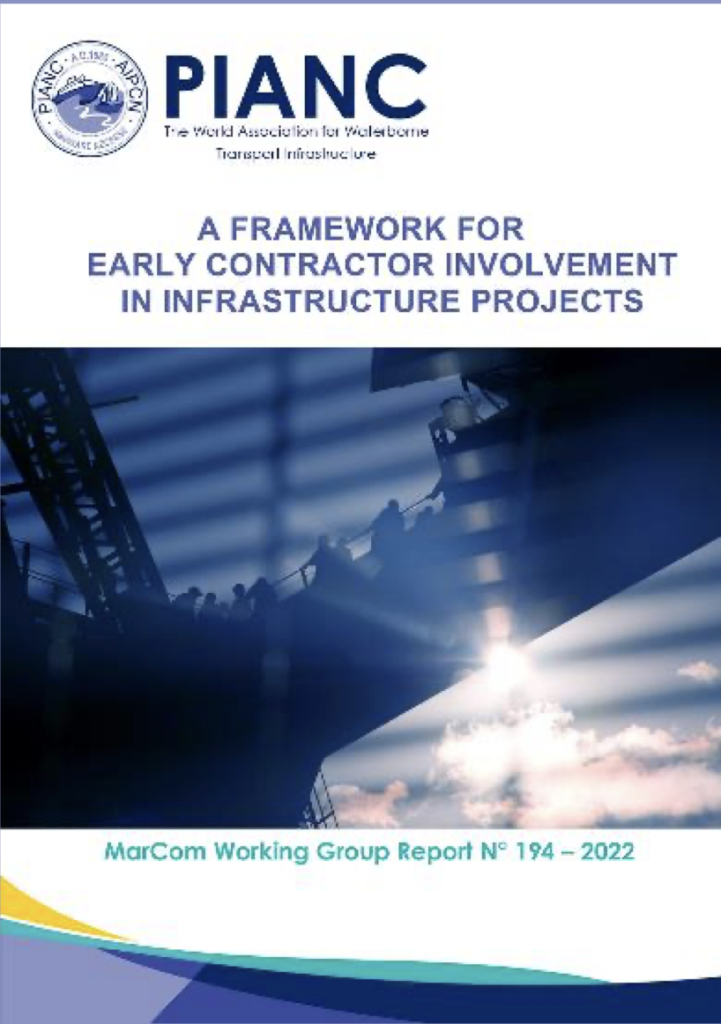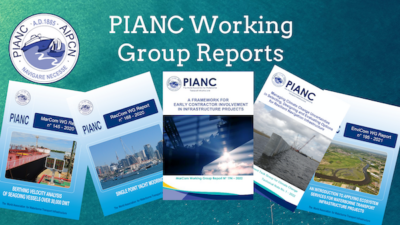Working Group Member from A&NZ – David Kinlan
MarCom WG194 ‘A Framework for Early Contractor Involvement in Infrastructure Projects’ was published by PIANC in August 2022. At some 183 pages it provides a detailed introduction into the understanding and the application of Early Contractor Involvement (ECI) in waterborne transport infrastructure projects.
Congratulations to all involved, particularly our A&NZ participant David Kinlan, a marine Contracts Manager with substantial experience in the global maritime and civil engineering industry.
About WG194 and ECI: It is increasingly acknowledged that the potential for Waterborne Transport Infrastructure (WTI) project cost blowouts, coupled with the progressively complex nature of planning, can negatively affect both the procurement and execution processes for many projects.
Early Contractor Involvement (ECI) is a strategy initiated by infrastructure owners (clients) towards main contractors and optionally expanded to consultants, stakeholders and subcontractors. The purpose of ECI is to optimise values in project delivery and objectives, through their participation and knowledge sharing in earlier stages of project planning and design prior to project execution.


PIANC’s WG194 offers practical guidance to all industry practitioners to assist in the successful application of ECI in the WTI sector for the betterment of the industry as a whole.
The WG194 Report also identifies that the hallmarks of a successful ECI process have been established, such as addressing good faith, transparency, equal treatment of all parties, fairness, clarity through clear rules of engagement and protection of intellectual property. It is the only comprehensive guidance document available on the subject of ECI in the construction industry. It offers a practical approach to all industry practitioners to assist in the application of ECI in the waterborne transport infrastructure sector
For David, working on the report was an opportunity to collaborate with a large group of industry practitioners as co-authors from client, consultant and contractor backgrounds by successfully pooling knowledge and experience together. When drafting the Report it was realised that there was no single dominant concept or approach to ECI. Diverse regions and countries appear to deal with ECI differently. The common denominator identified was that through their participation and knowledge sharing in stages of project planning and design prior to project execution it was possible to obtain positive results.
Personally one of the best outcomes, he says, was working with like-minded colleagues to break down barriers and promote the wider acceptance of ECI. This has led David to set up an international consultancy specifically focussed on developing ECI projects.
There are a number of maritime projects in A&NZ that have implemented ECI in one form or another in recent years and with the publication of PIANC’s WG194 the number will hopefully increase in the years ahead.
